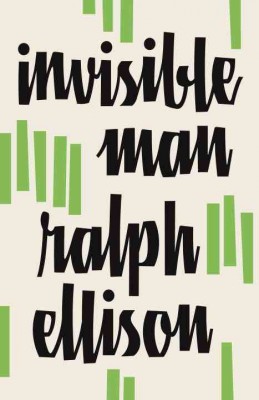| Invisible Man Contributor(s): Ellison, Ralph (Author) |
|
 |
ISBN: 0679732764 ISBN-13: 9780679732761 Publisher: Vintage OUR PRICE: $15.30 Product Type: Paperback Published: March 1995 Annotation: Invisible Man is a milestone in American literature, a book that has continued to engage readers since its appearance in 1952. A first novel by an unknown writer, it remained on the bestseller list for sixteen weeks, won the National Book Award for fiction, and established Ralph Ellison as one of the key writers of the century. The nameless narrator of the novel describes growing up in a black community in the South, attending a Negro college from which he is expelled, moving to New York and becoming the chief spokesman of the Harlem branch of "the Brotherhood," and retreating amid violence and confusion to the basement lair of the Invisible Man he imagines himself to be. The book is a passionate and witty tour de force of style, strongly influenced by T.S. Eliot's The Waste Land, Joyce, and Dostoevsky. |
| Additional Information |
| BISAC Categories: - Fiction | Classics - Fiction | African American - Urban |
| Dewey: FIC |
| LCCN: 52005159 |
| Lexile Measure: 870 |
| Series: Vintage International |
| Physical Information: 1" H x 5.25" W x 8" (1.00 lbs) 608 pages |
| Themes: - Ethnic Orientation - African American - Catalog Heading - Classics - Curriculum Strand - Language Arts |
| Accelerated Reader Info |
| Quiz #: 19790 Reading Level: 7.2 Interest Level: Upper Grades Point Value: 30.0 |
| Descriptions, Reviews, Etc. |
| Publisher Description: Both a deeply compelling bestselling novel and an epic milestone of American literature. Originally published in 1952 as the first novel by a then unknown author, it remained on the bestseller list for sixteen weeks, won the National Book Award for fiction, and established Ralph Ellison as one of the key writers of the century. The book's nameless narrator describes growing up in a black community in the South, attending a Negro college from which he is expelled, moving to New York and becoming the chief spokesman of the Harlem branch of the Brotherhood, before retreating amid violence and confusion to the basement lair of the Invisible Man he imagines himself to be. The book is a passionate and witty tour de force of style, strongly influenced by T.S. Eliot's The Waste Land, James Joyce, and Dostoevsky. |